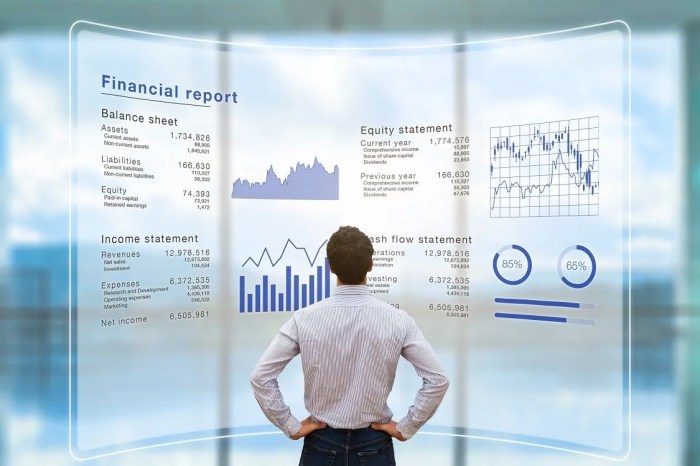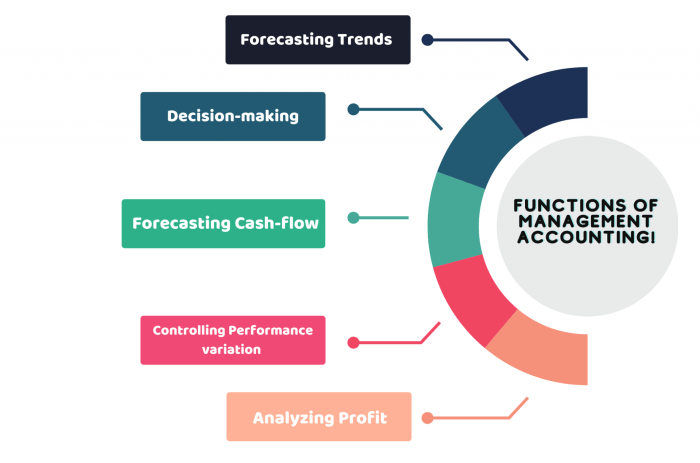Which of the following statements is true about managerial accounting? Managerial accounting, a crucial aspect of organizational decision-making, provides valuable insights to internal users. Unlike financial accounting, it focuses on supporting internal operations and improving efficiency. This comprehensive guide delves into the definition, purposes, users, reports, techniques, ethical considerations, technological advancements, and future trends of managerial accounting.
Definition of Managerial Accounting

Managerial accounting is a specialized field of accounting that focuses on providing financial and non-financial information to internal users within an organization. Unlike financial accounting, which primarily serves external stakeholders such as investors and creditors, managerial accounting is designed to support decision-making and improve operational efficiency within the company.
Purposes of Managerial Accounting
Managerial accounting serves several key purposes within an organization:
- Planning and budgeting:Managerial accounting provides data and analysis to support the development of financial plans and budgets.
- Decision-making:Managerial accounting provides information to help managers make informed decisions about resource allocation, pricing, and other business operations.
- Performance evaluation:Managerial accounting helps managers track and evaluate the financial performance of different departments and individuals within the organization.
- Control:Managerial accounting provides information to help managers monitor and control costs and ensure that the organization is operating efficiently.
Users of Managerial Accounting Information

The primary users of managerial accounting information are internal users within the organization, including:
- Managers:Managers at all levels use managerial accounting information to make decisions and manage their operations.
- Executives:Executives use managerial accounting information to make strategic decisions and set the overall direction of the organization.
- Employees:Employees may use managerial accounting information to understand their role in the organization and to contribute to its success.
Types of Managerial Accounting Reports

Managerial accounting reports can be classified into several types:
- Financial statements:Financial statements provide a summary of the organization’s financial performance and position. They include the income statement, balance sheet, and statement of cash flows.
- Budget reports:Budget reports compare actual results to budgeted amounts and help managers identify areas of variance.
- Cost reports:Cost reports provide information about the costs incurred by the organization, such as direct materials, direct labor, and overhead costs.
- Performance reports:Performance reports evaluate the efficiency and effectiveness of different departments or individuals within the organization.
Key Questions Answered: Which Of The Following Statements Is True About Managerial Accounting
What is the primary purpose of managerial accounting?
Managerial accounting aims to provide relevant and timely information to support decision-making within an organization.
How does managerial accounting differ from financial accounting?
Managerial accounting focuses on internal reporting and decision-making, while financial accounting emphasizes external reporting to shareholders and other external stakeholders.
Who are the typical users of managerial accounting information?
Managers at all levels, including executives, department heads, and supervisors, rely on managerial accounting data.
What types of reports are commonly used in managerial accounting?
Managerial accounting reports include budgets, performance reports, and cost-benefit analyses.
How does technology impact managerial accounting?
Technology has revolutionized managerial accounting by automating tasks, improving data analysis capabilities, and facilitating real-time reporting.